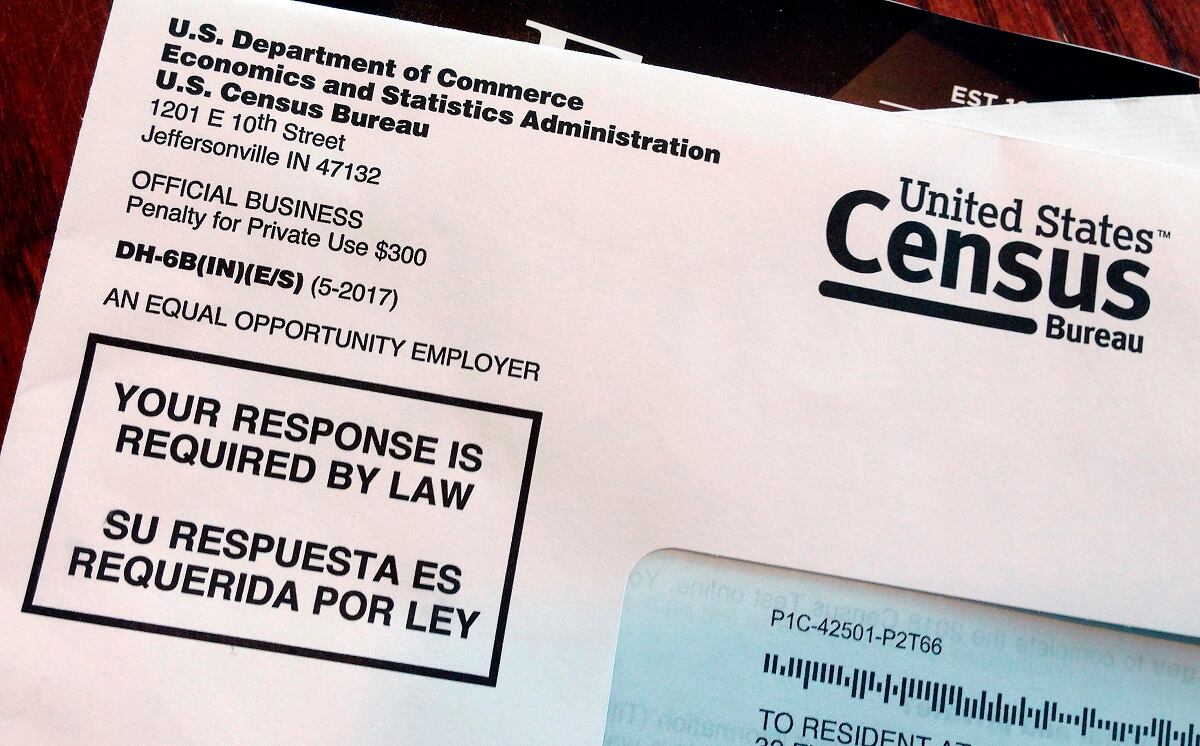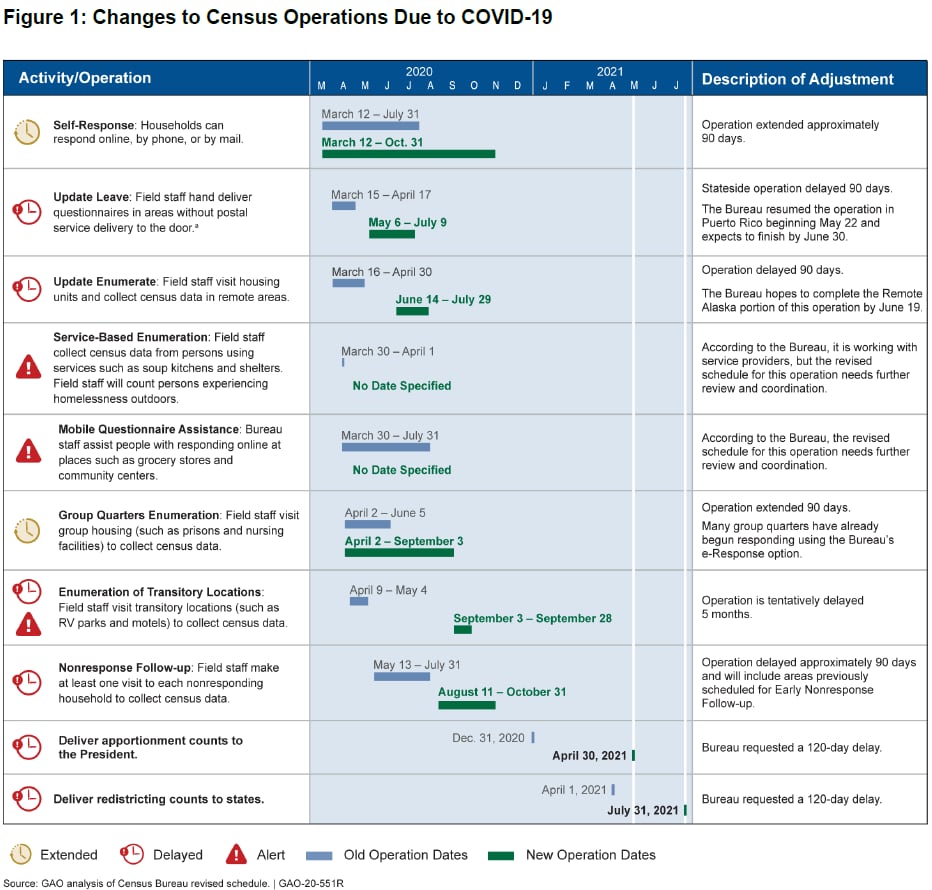Employees at Census Bureau offices around the country are dissatisfied with agency leadership’s communications concerning adjusted timelines for conducting the 2020 census and reopening certain regional offices due to the COVID-19 pandemic, according to a Government Accountability Office Report issued June 9.
“Responses to our survey underscore the need for the Bureau to ensure that there are lines of communications for [area census office] managers to ask questions and get timely responses. Less than half of the respondents in our early-April survey expressed satisfaction with the clarity and timeliness of headquarters and Regional Census Centers communication related to the pandemic,” the GAO report reads.
“Specifically, in response to multiple survey questions about the clarity of Bureau communications, respondents reported satisfaction 42 percent of the time on average; in response to multiple questions about the timeliness of Bureau communications, respondents expressed satisfaction 35 percent of the time on average.”
GAO noted in a May 2019 report that the Census Bureau needed to develop response plans for emergencies like natural disasters or a pandemic, and the agency updated it’s risk register to include “rapid response” as its contingency plan for any disaster. Such a plan means that the agency intended to develop the response to an emergency situation once that emergency became apparent.
RELATED

“Bureau officials told us that, depending on the type of major disaster, response would vary widely and even if they had a more detailed contingency plan for a pandemic it would have never addressed the magnitude of the current national emergency that is taking place across the country,” the report reads.
But as the Census Bureau moved to implement changes, especially to the timelines for certain activities and requesting that Congress extend the deadline for reporting census results to give the agency more time, local offices did not feel that they were always kept in the loop about planning.

“Bureau officials acknowledged their earliest communications to managers on the pandemic were not as informative as later guidance. They suggested that because the timing of COVID-19 outbreaks varied geographically, satisfaction reported by managers may also vary,” the report reads.
The agency may also struggle to catch up once normal operations resume, as hiring efforts, which already planned for fewer staff and a more online-centered enumeration, may fall short of post-COVID staffing needs due to delays in the timeline.
Census employees told GAO that they worried about their safety and the ability to work from home once field operations resume.
“In our early-April survey of ACO managers, open-ended comments we received from survey respondents contained concerns about census worker safety and its effect on staffing levels, such as the fear of being in contact with coworkers who potentially could be carrying the virus. Other comments received contained concerns about whether relevant public health guidance had been followed and about the adequacy of protective equipment and cleaning supplies provided to the ACO. In early May, the Bureau announced that it had ordered this equipment for all field staff and that these materials will be secured and provided before starting operations,” the report reads.
“Nine ACO managers commented that the ACO had been kept open during the suspension of field operations with some staff required to be present each day, and 10 commented that the ACO had not been issued a sufficient number of laptops to enable telework for all managers. In our discussions with senior Bureau officials, they confirmed that the ACOs had been kept open and that it would be looking at a range of options, including possible telework, to flexibly respond to COVID-19 moving forward.”
But much of the Census Bureau’s current plans, which include staff beginning to visit housing units in remote areas to collect data as soon as June 14, relies on the ability to resume more in-person operations, a plan that could be threatened in the event of a second wave of COVID-19.
Jessie Bur covers federal IT and management.





